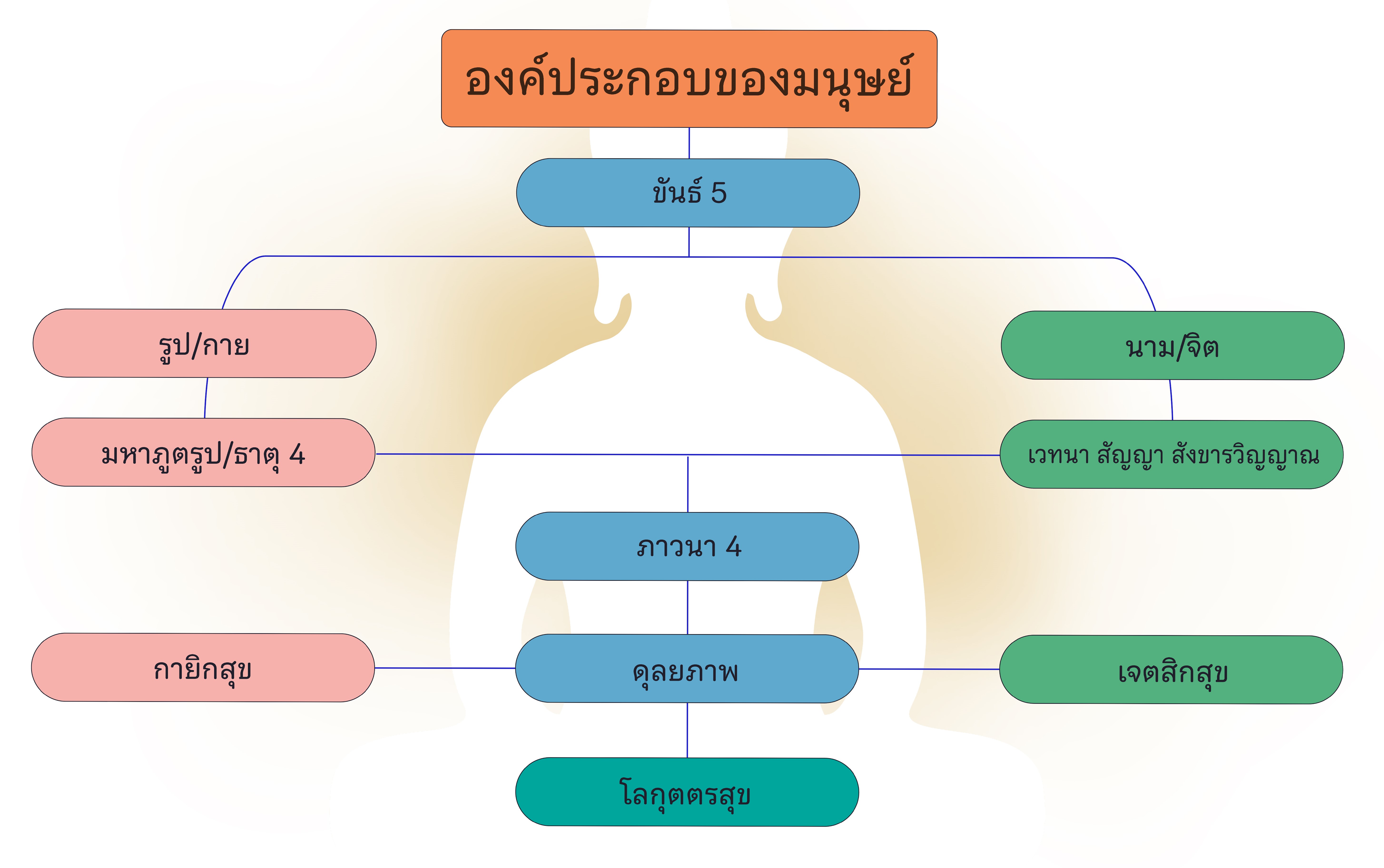The Development of the Buddhist Quality of Life in New Mexico, USA According to Buddhist Ethics
Main Article Content
Abstract
The purposes of this research were 1) to study Buddhist ethical principles for quality-of-life improvement; 2) to examine the quality-of-life of Buddhists in New Mexico, USA; 3) to present the improvement of the quality-of-life of Buddhists in New Mexico, USA, through Buddhist ethics. This qualitative study explores information from the Tipitaka, relevant documents, and research, with key informants consisting of 30 individuals/monks. Data is analyzed descriptively using inductive methods.
The results revealed that:
1. Buddhist ethics are teachings in Buddhism concerning human conduct, criteria for determining good and evil, and what should or should not be done. The ethical principles used for improving the quality of life include the threefold training (Tisikkhā) and the four types of meditation (Bhāvanā). Applying these principles to improve the quality of life leads to both mundane and transcendent happiness.
2. Four quality of life issues identified include: (1) differences, (2) inequality, (3) housing, and (4) personal problems. The synthesis shows that issues 1-2 are social problems, issue 3 is a physical problem, and issue 4 is a mental-intellectual problem. These issues cause incomplete quality-of-life, necessitating development through Buddhist ethics.
3. Quality of life improvement through Buddhist ethics reveals that: (1) Physical Aspect: developing through moral precepts (Sīla) promotes good health. (2) Mental Aspect: developing through meditation (Samādhi) fosters emotional well-being. (3) Intellectual Aspect: developing through wisdom meditation (Paññā Bhāvanā) enhances understanding of impermanence based on the Three Characteristics (Tilakkhaṇa). (4) Social Aspect: developing through physical meditation (Kāya Bhāvanā) and moral precepts (Sīla Bhāvanā) fosters compassion towards society and the environment, creating a welfare society. The results of this development make an individual a fully developed person with body, morality, mind, and wisdom, leading to physical and mental well-being.
Article Details

This work is licensed under a Creative Commons Attribution-NonCommercial-NoDerivatives 4.0 International License.
เพื่อให้เป็นไปตามกฎหมายลิขสิทธิ์ ผู้นิพนธ์ทุกท่านต้องลงลายมือชื่อในแบบฟอร์มใบมอบลิขสิทธิ์บทความ ให้แก่วารสารฯ พร้อมกับบทความต้นฉบับที่ได้แก้ไขครั้งสุดท้าย นอกจากนี้ ผู้นิพนธ์ทุกท่านต้องยืนยันว่าบทความ ต้นฉบับที่ส่งมาตีพิมพ์นั้น ได้ส่งมาตีพิมพ์เฉพาะในวารสาร วิชาการธรรม ทรรศน์ เพียงแห่งเดียวเท่านั้น หากมีการใช้ ภาพหรือตารางของผู้นิพนธ์อื่นที่ปรากฏในสิ่งตีพิมพ์อื่นมาแล้ว ผู้นิพนธ์ต้องขออนุญาตเจ้าของลิขสิทธิ์ก่อน พร้อมทั้ง แสดงหนังสือที่ได้รับการยินยอมต่อบรรณาธิการ ก่อนที่บทความจะได้รับการตีพิมพ์References
พระครูวินัยธรอำนาจ พลปญโญ. (2561). ปัญหาและหลักการพัฒนาคุณภาพชีวิตในศตวรรษที่ 21. วารสารพุทธมัคค์ ศูนย์วิจัยธรรมศึกษา สำนักเรียนวัดอาวุธวิกสิตาราม, 3(2), 25-35.
พระครูสุนทรชัยวัฒน์ (ทวีสุชีโว ตัวประโคน). (2555). การศึกษาวิเคราะห์พุทธจริยศาสตร์ในคัมภีร์อรรถกถาธรรมบท. (วิทยานิพนธ์พุทธศาสตรมหาบัณฑิต). พระนครศรีอยุธยา: มหาวิทยาลัยมหาจุฬาลงกรณราชวิทยาลัย.
พระธรรมปิฎก (ป.อ.ปยุตโต). (2540). พุทธรรมกับการพัฒนาชีวิต. กรุงเทพฯ: ธรรมสภา.
พระมหาสมชาย สิฐิจนฺโท (หานนท์. (2547). พุทธธรรมเพื่อการพัฒนาคุณภาพชีวิตตามแนวทางของพระเทพวรคุณ (สมาน สุเมโธ). (รายงานการวิจัย). พระนครศรีอยุธยา: มหาวิทยาลัยมหาจุฬาลงกรณราชวิทยาลัย.
เพียงหทัย พงษ์สุวรรณ. (2565). การประยุกต์ใช้หลักทิฏธธัมมิกัตถประโยชน์ เพื่อพัฒนาคุณภาพชีวิตของผู้บริหารธุรกิจก่อสร้างในกรุงเทพมหานคร. วารสารสหวิทยาการนวัตกรรมปริทรรศน์, 5(2), 1-15.
ศรีนวล ศุภานุสนธ์. (2546). ชีวิตที่ดีตามทรรศนะของพุทธจริยศาสตร์. (วิทยานิพนธ์อักษรศาสตรมหาบัณฑิต). กรุงเทพฯ: มหาวิทยาลัยมหิดล.
สาริกา หาญพานิชย์. (2558). การศึกษาวิเคราะห์รูปแบบการพัฒนาคุณภาพชีวิตเชิงพุทธบูรณาการ. วารสารมนุษยศาสตร์สังคมศาสตร์, 32(3), 25-48.
สำนักงานคณะกรรมการพัฒนาเศรษฐกิจและสังคมแห่งชาติ. (2560). แผนพัฒนาการเศรษฐกิจและสังคมแห่งชาติ ฉบับที่ 12 (พ.ศ. 2560-2564). กรุงเทพฯ: สำนักนายกรัฐมนตรี.
อนุชาติ พวงสำลี และคณะ. (2539). การพัฒนาเครื่องมือชี้วัดคุณภาพและสังคมไทย. กรุงเทพฯ: สำนักงานกองทุนสนับสนุนการวิจัย (สกว.).
อาณัติ นิลขาว. (2563). รูปแบบพุทธจิตวิทยาพัฒนาตนที่มีผลต่อองค์การแห่งการเรียนรู้. วารสารสังคมศาสตร์และมานุษยวิทยาเชิงพุทธ, 5(3), 53-69.

